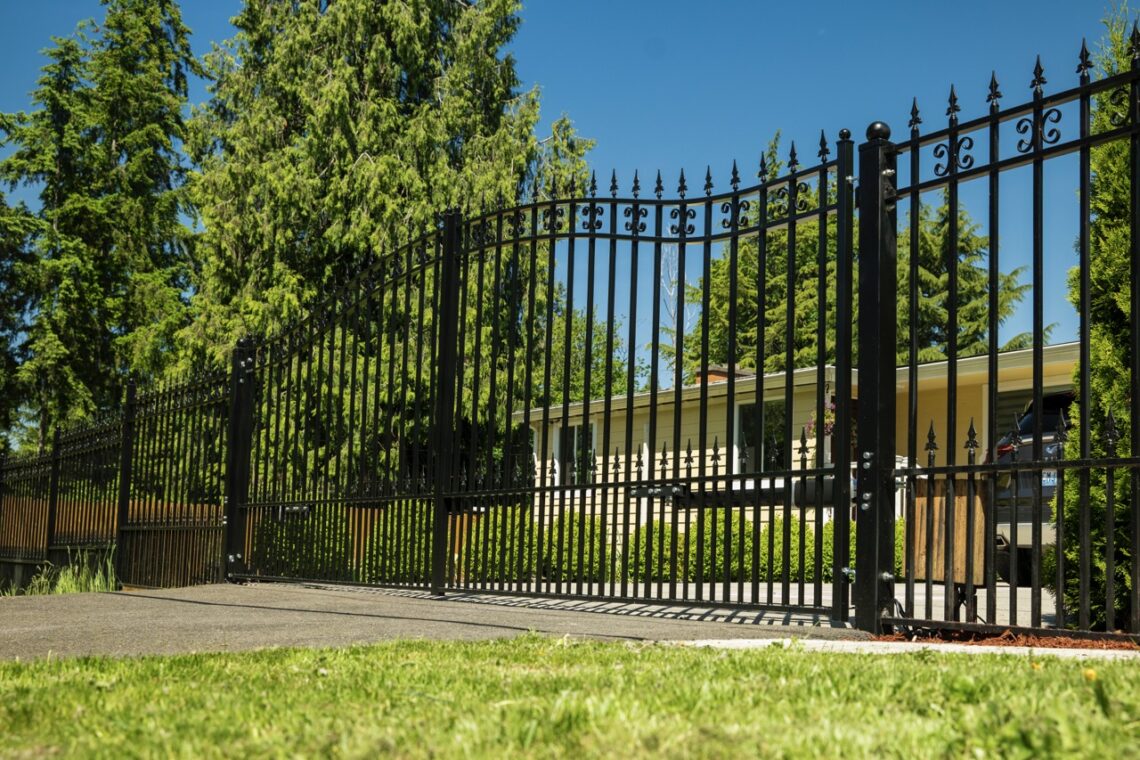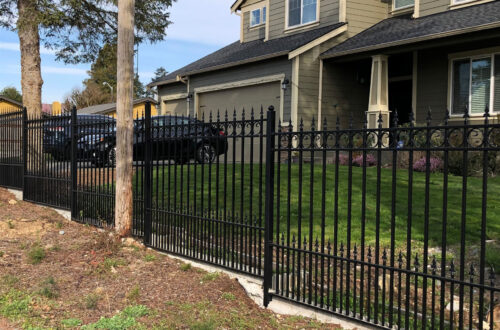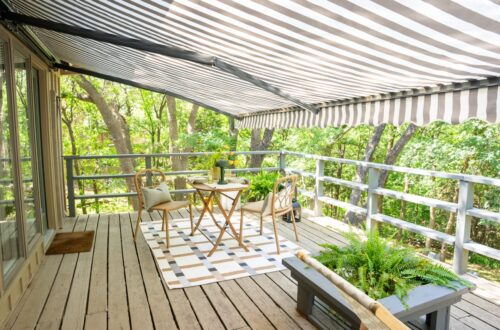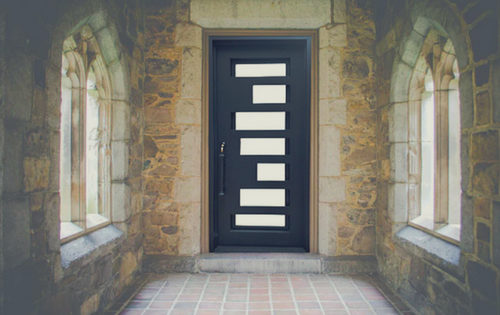When considering improvements that boost property value, fencing might not be the first feature that comes to mind—but it certainly deserves a closer look. In the right circumstances, a fence can increase property value by improving curb appeal, enhancing privacy, and providing a sense of security. That said, the type of fencing, its condition, and its alignment with local expectations all influence the return on investment.
In this guide, we’ll explore how and when a fence increase can positively impact your home, and what types of residential fencing are most effective at adding value.
Do Fences Increase Property Value?
First impressions matter, especially in real estate. A well-maintained, professionally installed fence can contribute significantly to a home’s perceived value. Whether it’s a classic wood fence, a modern vinyl fence, or an ornamental metal fence, the presence of a quality fence can enhance the overall look of a property, signaling that it’s secure, cared for, and thoughtfully designed.
What Homebuyers Are Looking For
Today’s homebuyers often prioritize features that offer both function and form. Privacy fences, for example, are highly sought after by families with children or pets. Similarly, homes with backyard fences tend to appeal to buyers who value security and outdoor living spaces. In many cases, a fence adds value because it provides peace of mind and delineates the property line clearly.
Factors That Influence a Fence’s Impact on Value
Fence Material and Design
The fencing material you choose plays a critical role in determining whether a fence add will positively impact your home value. While a professionally installed vinyl fence may suggest low maintenance and longevity, a charming wooden fence often evokes warmth and traditional appeal. On the other hand, a chain link fence, though practical, may not contribute significantly to perceived property value in most residential areas.
Popular fencing materials include:
- Wood fencing – Natural and versatile, but requires regular maintenance
- Vinyl fencing – Durable, clean-looking, and low maintenance
- Steel and wrought iron style fences – Elegant and secure with minimal upkeep
- Chain link fencing – Cost-effective, but better suited for utility than aesthetics
Condition and Maintenance
An existing fence that is in poor condition can detract from your home’s curb appeal and raise red flags for potential buyers. Rust, rot, chipped paint, or leaning panels suggest neglect and may decrease your home’s value. In contrast, a well-cared-for fence installation, even if not brand new, can support a positive impression of the entire property.
Neighborhood Expectations and Local Trends
Whether a fence increases property value depends in part on local context. In neighborhoods where residential fencing is the norm, not having a yard fence may make your property stand out for the wrong reasons. Similarly, upscale communities may expect decorative fences like wrought iron fences, while others may lean toward practical solutions like vinyl fencing or tall fences for privacy.
Security and Privacy Benefits
A secure and private outdoor area can directly affect your home value. Privacy fences and tall fences create defined spaces for outdoor entertaining, gardening, or relaxation. For buyers with pets or small children, a secure fence is often non-negotiable.
Best Types of Fences for Boosting Home Value
Wood Fences
A wood fence remains a timeless favorite. It’s visually appealing, customizable, and blends well with many architectural styles. However, keep in mind that wood fencing requires regular fence repair, staining, or sealing to maintain its appearance and structural integrity.
Vinyl Fences
If low maintenance and durability are priorities, a vinyl fence is an excellent option. Resistant to weather, rot, and pests, vinyl fencing retains its appearance for years with minimal upkeep. In many suburban neighborhoods, this can be seen as a strong asset that contributes positively to the overall value of the property.
Wrought Iron Style & Metal Fences
Both galvanized steel fences and wrought iron style fences offer sophistication and strength. These styles are particularly suitable for historic homes or properties with landscaped gardens. While typically more expensive, their visual impact and longevity can yield a solid return.
Chain-Link Fences: Functional but Low ROI
A chain link fence is practical and affordable, often used for containment and security. However, it generally offers limited aesthetic appeal and may not add to the resale value in residential settings. For this reason, it’s more commonly seen in utility or rural applications.
When a Fence Might Not Add Value
Poor Installation or Low-Quality Materials
If a new fence is installed without proper alignment, or if substandard fence materials are used, the result may lower a home’s value rather than enhance it. Professional fence installation is essential—buyers will notice the difference between a DIY attempt and the work of an experienced fence contractor.
Blocking Scenic Views or Light
Not all fences add value. In areas with scenic vistas or ample natural light, a tall fence could actually work against you. Homebuyers looking for open views may see this as a downside, particularly if the fence feels confining or unnecessary.
Misalignment with Neighborhood Aesthetics
If your fence clashes with the architectural style of your home or the general appearance of neighboring properties, it may negatively impact perceived value. Uniformity in fencing across a neighborhood often contributes to a cohesive and attractive environment.
Tips for Choosing the Right Fence for Your Home
Match the Style of Your Home
A good fence should complement your home’s design. Traditional homes pair well with white picket fences or wood fences, while modern or contemporary homes may benefit from sleek metal fencing or minimalist vinyl fencing.
Prioritize Durability and Low Maintenance
Choose materials that offer long-term benefits with minimal upkeep. Vinyl and powder-coated metal fences are all excellent choices for homeowners who want to avoid ongoing fence repair and maintenance.
Check HOA and Local Regulations
Before starting a fence installation, review local zoning laws, building codes, and HOA requirements. Restrictions on fence height, fencing materials, and placement on the property line may influence your choices. Non-compliance can lead to fines or required removal, which is costly and inconvenient.
Final Thoughts: Is a Fence Worth the Investment?
So, does a fence increase property value? The answer is: yes—when thoughtfully selected and properly installed. A new fence can add functional benefits like security and privacy while enhancing the curb appeal and perceived value of your property. However, it’s essential to choose the right fence for your home, neighborhood, and buyer expectations. If you’re ready to give your home an upgrade, shop our line of metal fences and gates at ALEKO today.





